A small book about what transpired in 1970 during the revival at Asbury College in Wilmore, Kentucky, contained an introduction written by famed evangelist Billy Graham. In the foreword to the book by Robert E. Coleman, “One Divine Moment: The Asbury Revival,” Graham wrote the following:
“The unusual revival which came to Asbury College early in 1970 and spread to scores of campuses across America is evidence that God is still at work in His world, lifting men and women out of self-centeredness, secularism, and boredom.
“It came at a time when radical students were striving desperately to upset the educational equilibrium of our nation with burning, destroying property, rock throwing, and other forms of violence. The Bible says, ‘…where sin abounded, grace did much more abound,’ and His grace was displayed in a phenomenal way on many campuses, even while other campuses were on the brink of chaos.
“With the Lord, it is usually in the worst of times that the best things happen. The Protestant Reformation, the Wesleyan Revival, and the Great Awakening in America in the nineteenth century are examples.
“Perhaps the eruptions of revival which swept through a segment of our college youth in the early months of 1970 are harbingers of what the Holy Spirit is ready, able and willing to do, throughout the world, if Christians will dare to pay the price.
“It is my prayer that what began at Asbury College, and spread like wildfire to other campuses, will encourage believers everywhere to claim the promise: “If my people, which are called by my name, shall humble themselves, and pray, and seek my face, and turn from their wicked ways; then will I hear from heaven, and will forgive their sin, and will heal their land.” (II Chronicles 7:14).” — Billy Graham
Everything Billy Graham said about the 1970 revival at Asbury College is incredibly applicable in this current 2023 revival taking place. Like then, we are left asking, “Could this be the time when the Lord revisits his people and claims his Bride, the Church?” Even so, come, Lord Jesus!
My personal experience during the 1970 revival
It was early in the evening on February 3, 1970. I was in my first year at Asbury Theological Seminary where I was working on a Master of Divinity degree.
I had felt called out of a fledgling career in the United States Navy to a lifetime of ministry in the service of the Lord. My wife, Judy, and our three toddlers were at home in our tiny student housing duplex.
I had settled myself at a large table at the seminary library with about a dozen reference books and a ream of paper ready to spend a long, hard night working on a major research assignment.
It wasn’t too long before one of my friends and classmates approached me with the sort of excitement one would expect from a person who was announcing that there was a fire in the building. As it turned out, there really was a fire on the campus. It was across the street at the Asbury College chapel. It was a fire from heaven.
I asked my friend to calm down enough to explain what was happening. He informed me that the morning chapel service was still in session and that all sorts of wild and wonderful things were happening. A revival had begun. My immediate response was to grab up my materials, put them in my car, and jog over to the college chapel. I wanted to see for myself what was taking place.
Judy and I had already been exposed to openly charismatic displays while regularly attending a large church in Orange County, CA, even though we lived in San Diego where I was stationed. The hour and a half drive was worth it. This church eventually became known as Melodyland.
I must admit that I was not prepared for what I witnessed. There was singing, there was worship, there were personal testimonies of healings, there was laughing and crying as people poured out their hearts near the altar.
To a casual observer it must have seemed to be wildly chaotic. Yet, I knew for sure that the Holy Spirit was at work in His more than usual mysterious ways. Yes, a true old-fashioned revival had begun.
What was most evident to me was the shamelessly honest humility that prompted a pure atmosphere of corporate repentance. So many of the students confessed their sins and shortcomings openly, trusting that forgiveness and restoration would be forthcoming. The joy of the Lord captivated the hearts of the crowd and His great love was existentially obvious.
No plan or program — it was completely spontaneous
The revival, like the current one, began completely spontaneously. It was not born out of a crusade or powerful preaching from the pulpit. Nobody in particular seemed to be in charge. People were caught up in the same divine moment, something like heaven meeting earth in the brilliant breaking of dawn.
There was an inexplicable transcendence that was guiding the gathering, and the usual morning chapel service program quickly became irrelevant as the fast-growing crowd became captivated by the atmosphere.
I experienced a deep sense of gratitude that a “mini Pentecost” had broken out in the chapel of a college that embraced a strict Wesleyan doctrine, one which rejected any charismatic activity as adamantly as they did drinking alcohol. Holiness included no public display of affection, even between married students. Yet everyone seemed to be intoxicated. The genuine hugs and embracing one another was definitely evident.
I wanted to use extreme caution in whatever I said or whatever I did as I submitted to the Holy Spirit and began to minister to some of the students who were crying or wanted prayer. I remember that I felt a bit like a secret agent sowing a foreign perspective to kids who were locked up in legalistic doctrinal holiness with no power to beat their own flesh into righteous submission.
In reality, I was just caught up in the flow of the Spirit like everyone else. The only difference for me being that I was already a veteran of charismatic outbursts and this one was certainly authentic.
[Dr. Curtis received the following report of the current revival from the president of Asbury Theological Seminary, Dr. Timothy Tennent:]
Thoughts on the Asbury Awakening
Something special happened last Wednesday [Feb. 8, 2023] in the chapel of Asbury University chapel. The Lord began to move in the lives of a group of students. These embers have now been fanned into flame and there is clearly a definite move of God in our midst. We should not spend too much time looking for human causality, though there have been many praying earnestly for years for this.
It is first, last and foremost a tribute to the grace of God to reveal himself and to call a new generation to faithfulness at a time when we most needed it. There comes a point when the people of God become tired of causal prayers and move to that point of desperation which opens us up in fresh ways to God’s surprising work. That is what I have experienced most over the past week in my own life.
I have been reticent to write blogs, or make a lot of public statements about this outpouring at Asbury because it is always better to stand in awe of something than to talk about something. I have been in Hughes auditorium or Estes, or both, every day and night, and it is like stepping into a flowing spiritual river. You sense the presence and power of God working in people’s lives. Since last Wednesday when the outpouring began, I have reflected many times on Jesus’ statement about the Spirit when he said, “the wind blows wherever it wants. Just as you can hear the wind but can’t tell where it comes from or where it is going, so you can’t explain how people are born of the Spirit.” This is not a time to “manage” this or to try to “shape” it. This is the time to simply receive from God’s hand.
Several people have commented on some of the differences between these sacred days and the more well-known outpouring which took place in February of 1970. A lot has been said about the impact of social media in telling the story, or about the focus on worship. However, a deeper look at this outpouring reveals that it has the same elements which are found in any authentic revival: people repenting of their sins; people being filled with the Holy Spirit; men and women finding reconciliation with God and their neighbor; people capturing a renewed love for Jesus, the gospel and the Holy Scriptures. All of the above has been happening here day after day.
Another similarity is that this outpouring has the same “inner” core and “outer” core as in 1970. There is the inner work of God in the lives of this younger generation. This is the focus of the outpouring. The leadership has wisely reserved the central, front section of the chapel for the students themselves, since this is their space and God choose to begin this work among them. The “outer” core are the hundreds of people who are pouring in from the outside who are catching this fire and bringing it back to their churches and communities. Both are important.
Another point regularly observed by those who have been a regular part of these services, is the solemnity and peace in the various places where this movement has spread around town. Sometimes we envision “revivals” as times when people hear fiery sermons and there are big outbursts of emotion. This move of God is marked more by quiet weeping than emotive shouting.
Despite the endless coverage in social media and the regular media which is calling this a revival, I think it is wise to see this, at the current phase, as an awakening. Only if we see lasting transformation which shakes the comfortable foundations of the church and truly brings us all to a new and deeper place can we look back, in hindsight and say, “yes, this has been a revival.”
An awakening is where God begins to stir and awaken people up from their spiritual slumber. This is definitely happening not only in Wilmore, but as this move of God spreads to other schools and communities across the nation and even the world. There are many reports that this is what is happening. But, we must keep our hearts and eyes fixed on Jesus and ask for him to complete the work he has begun so that, over time, there is a lasting transformation in the lives of those who are being touched by God.
This is the reason why both the University and the Seminary have not cancelled classes. It is not because we are in a “business as usual” mode. Far from it. There is talk of little else in every chapel, in every classroom, in every hallway conversation, and, I suspect, in every home and apartment in the community.
The desire is to “mainstream” renewal into the very fabric of our lives so that we are transformed right where we live, and work and study. We all love mountaintop experiences, but we also know that it must be lived out in all the normal rhythms of life.
We have to live into this desperation for God to do what we cannot do. We have to live into transformed relationships. We have to live into new patterns of life and worship. In short, we must embrace what it means to really live as Christians in the midst of a church culture which has largely domesticated the gospel beyond recognition.
We will know that revival has truly come to us when we are truly changed to live more like him at work, at study, at worship, and at witness. David Thomas, who has been greatly used by God to shepherd this awakening, has reminded us daily that we should let God move us to a permanent place of transformation before God and the eyes of the watching world. In that sense, we are seeking to take what is clearly an abnormal move of God and ask how this can become normalized in a deep way.
Someday, we will look back on these days and thank God that he visited us in ways we will talk about for years to come. But, what we are doggedly seeking is not lasting memories, but transformed lives long after the lights go out in Hughes auditorium or Estes Chapel or all other places which are experiencing this work of grace. In short, it is not about “this place” or “that place” whether Wilmore or any other city. It is about Christ himself. None of us “owns” this awakening. But all of us must own in our own lives His work and his gracious beckoning to that deeper place. Come, Holy Spirit!
These comments appeared first on Timothy Tennent.com.
(This is part one of LeRoy Curtis’s report.)
[LeRoy Curtis is a graduate of the University of North Carolina, Chapel Hill, and Asbury Theological Seminary. He served four years as a U.S. Naval Officer after which he became a pastor, Bible professor, educator, author, and missionary living in E. Africa for eight years where he and his wife developed a curriculum of biblical studies for untrained pastors in rural Kenya. His passion for training young church leaders takes him to various parts of the U.S., Latin America, and Africa. He and Judy are currently residing in Carrollton, Georgia.]





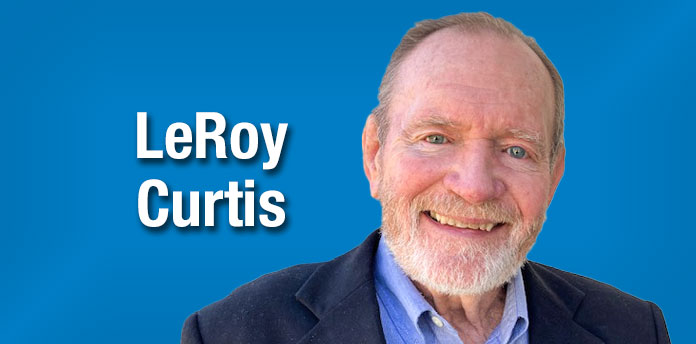


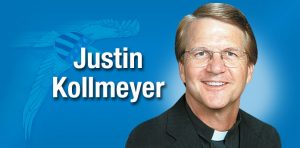
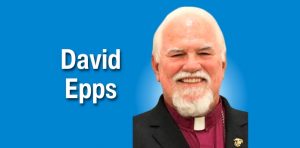
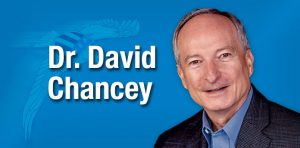
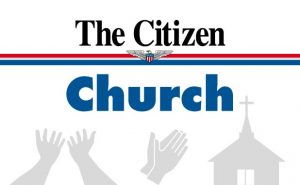
Leave a Comment
You must be logged in to post a comment.